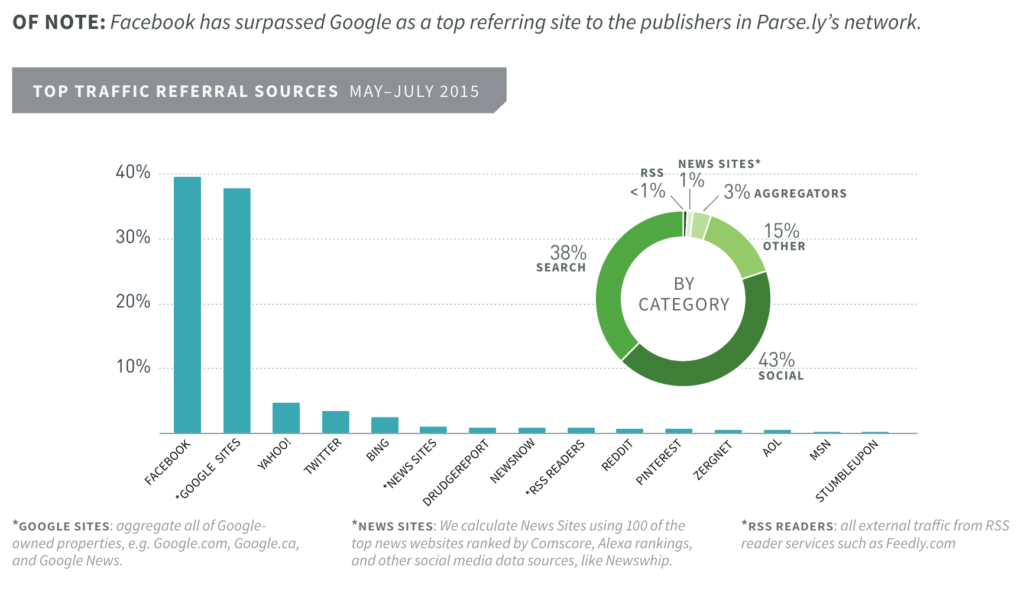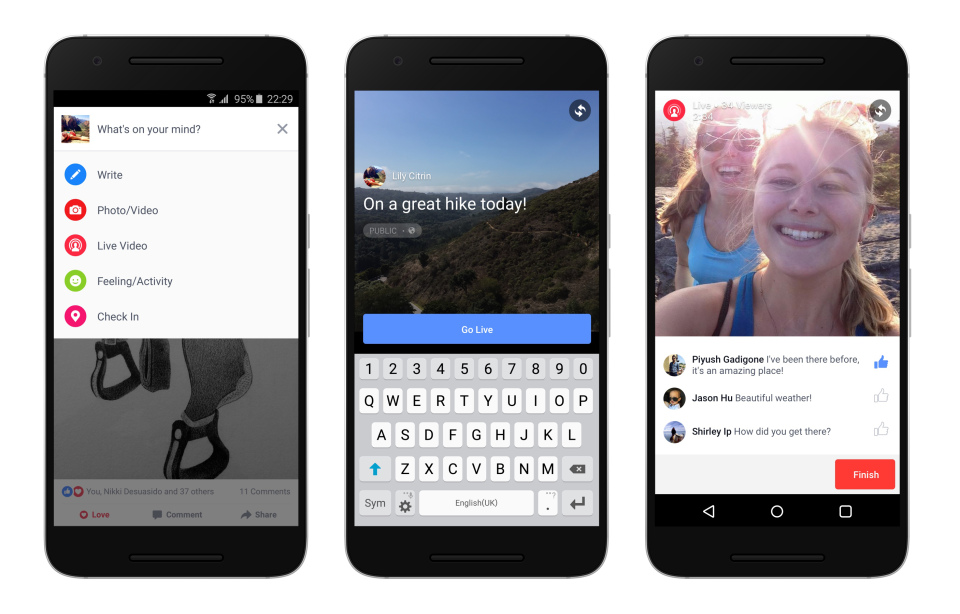New Facebook Algorithm Update Puts Friends and Family First

Let me ask you a simple question: What is the main reason people like to browse Facebook? Is it to check on the latest sale from local retailers? Is it to find out which homes are on the market in our area? Probably not. For most of us, it’s to connect with our friends and family and to see what’s going on in their lives.
But for the past couple years, Facebook’s News Feed hasn’t always felt like the best place for keeping in touch with the people who are closest to us.
Now that’s all about to change.
Recently, Facebook decided it’s time to bring their focus back to family and friends. This change is making a lot of buzz in marketing and publishing circles, and for good reason. Read on to find out what’s changing, why, and how it will affect you.
What is changing on Facebook?
Facebook is updating their News Feed algorithm which will limit the appearance of posts from content publishers, brands, and organizations. Instead of users logging in and seeing content from “non-human” pages they like or follow, they will instead see more posts from their friends and family. This will not limit publisher or marketing posts which are shared by a Facebook user’s friends from appearing in their feed, but only posts coming directly from publishers or marketers.
What caused the change?
Well, there have been a few occurrences along the way which played a role in this decision. First, Facebook began to hear complaints from users who were concerned that they were missing important posts from the folks they cared the most about; their friends and family. Unfortunately, while publishers were enjoying the expanding exposure, users were beginning to feel promotional content was taking over their feeds.
In addition Facebook saw a decrease in the amount of regular users who were posting. This is obviously a large concern because if genuine user-generated-content and engagement decreases, publishers will be the next group to begin looking elsewhere. Not to mention, there’s no shortage of viable social media platforms happy to welcome ex-Facebookers. Did someone say Snapchat?
So it seems as a way to give the users what they want and encourage re-engagement with the platform, Facebook is taking a ‘stand on values‘ to put publishers second to friends and family. They are trying to show that they are first and foremost a platform for socialization, and always have been.Marketing and content publishing is going to take the back seat.
In addition to these causes, many have pointed out that limiting brand and publisher reach is a win-win for Facebook. Not only will their human users be happier, but businesses will be more likely to pay to expand their reach further through Facebook Ads.
How will the change in algorithm impact publishers and marketers?
Unfortunately, the impact on publishers and marketers is going to be difficult at first. There will be a decrease in organic reach, making it harder to get branded content viewed. However, for those businesses that focus on getting users to share their content, they won’t have as much to worry about. This could be a big loss for companies who rely on their organic reach for driving business results. Media sites that now receive more traffic from Facebook than Google will be heavily hit.
 Source: http://fortune.com/2015/08/18/facebook-google/
Source: http://fortune.com/2015/08/18/facebook-google/
Furthermore, it has been predicted that this loss of organic traffic is going to result in a significant increase in Facebook Ad usage, since–until now–they have not been very expensive when compared to other advertising platforms.
Also, ad space may potentially be restricted to improve user experience, which would only reinforce how important it is to optimize each and every ad you launch. If you are a marketer or publisher, it will be wise to monitor how the change impacts your results and weigh the ROI of running Facebook Ads or possibly investing elsewhere.
What can you do about it?
The first thing you can is master Facebook’s paid advertising. The ad platform has become very sophisticated, and you can target new prospects precisely. If you would like to explore Facebook advertising contact the Ten Golden Rules team, we manage Facebook advertising for our clients, and in many cases, Facebook beats Google with lower Cost Per Lead.
Another recommendation in the aftermath of this recent algorithm change is to simply continue publishing highly-engaging content. Remember, this change does not affect the type of content being posted, only who is posting it.
In other words, if you can encourage your fans to share your posts, their friends will still see the content. So get those likes, comments, and shares up on each and every one of your posts. Make your content naturally engaging. Ask questions, use videos and images, and generally make people want to take action!
 Source: https://fbnewsroomus.files.wordpress.com/2016/02/live-android-screen.jpg?w=960
Source: https://fbnewsroomus.files.wordpress.com/2016/02/live-android-screen.jpg?w=960
Furthermore, there has never been a better time to explore Facebook Live, as videos shared on the platform continue to generate higher-than-average exposure in News Feed in most cases.
While this algorithm change is causing some worry for businesses who use Facebook, it’s also important to realize that if the users are not engaging with the platform, they will gradually decline until Facebook is not as useful as it once was –regular user or publisher. Facebook’s move is one to help regain their customer loyalty and that will likely benefit both parties in the end, if it works.
So, what do you think? Has your Facebook page been affected by this recent change? Tell us about it in the comments section below!

